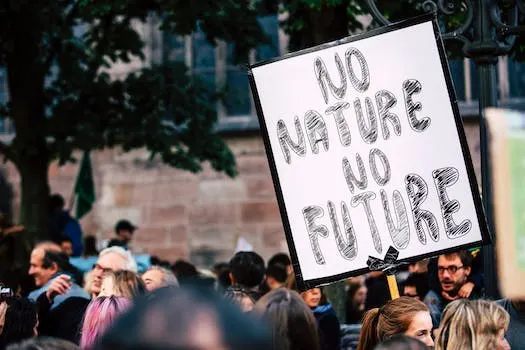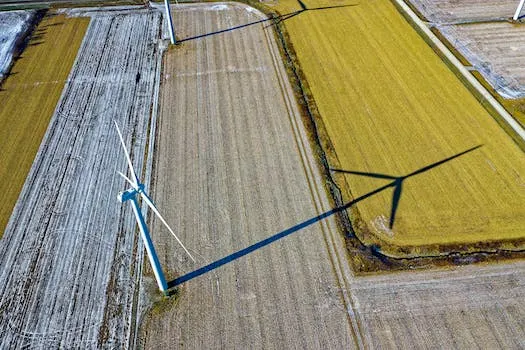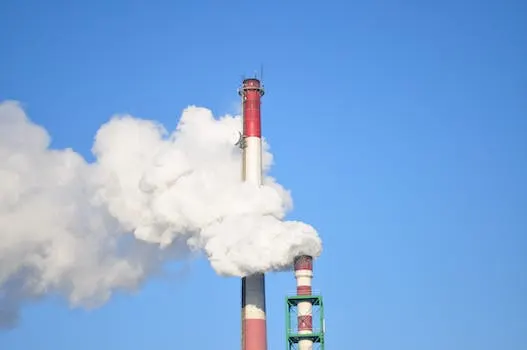
How 2023 Will Advance the Fight Against Climate Change
As the world continues to grapple with the effects of climate change, it's more important than ever to look ahead and envision a future in which we can make a real difference. In 2023, we will have access to improved observational datasets that will allow us to assess historical warming and progress in scientific understanding of climate change. This data will help us understand how continued emissions of greenhouse gases are leading to further climate changes, such as a warmer atmosphere and higher temperatures that worsen many types of disasters like storms, heat waves, floods, and droughts. We must also strive for net zero emissions by 2050 if we want global warming to largely halt. To this end, the UN released a new flagship report on climate change in Monday indicating that harmful carbon emissions from 2010-2019 have never been higher. Environmentalist Bill McKibben has even imagined what would happen if we "solved" climate change by 2050 - an inspiring vision for our future! With these advances in 2023 and beyond, there is hope that humanity can make real progress against global warming.
The Impact of Green Technology
2023 is set to be a pivotal year in the fight against climate change, as green technology is expected to become more widespread. Renewable energy sources such as solar and wind power will play a major role in reducing emissions and slowing the rate of climate change. This shift towards green technology will also have a positive economic impact, creating new jobs and industries while providing more affordable energy for people living in remote areas. The Renewable Energy Directive (2009/28/EC) has already seen an increase in renewable energy deployment since 2009, with renewables now accounting for over 22% of global electricity generation. In our pathway to net zero, almost 90% of global electricity generation is projected to come from renewable sources by 2050. Solar PV and wind are expected to make up the bulk of this figure, but other forms of renewable energy such as hydroelectricity must also be incentivized if we are going to meet our goals for reducing emissions. With these advances in green technology, 2023 could prove to be a turning point in the fight against climate change.
The Potential of Renewable Energy Storage
The potential of renewable energy storage is immense, and 2023 could be a major turning point in the fight against climate change. The U.S. Department of Energy has predicted that renewable energy will be the fastest-growing U.S. energy source through 2050, and there is unprecedented interest in renewables as sources of sustainable energy, particularly solar and wind power which provide electricity with no emissions or pollutants. Renewables can contribute to the remaining 30% of the energy intensity improvements between now and 2050, for instance through renewables-based electrification. To make this happen, however, we need reliable methods for storing renewable energy so that it can be used during times when production is low as well as when it is high - something that could lead to greater adoption of renewable sources in the future.
The Renewable-Energy Revolution Will Need Renewable Storage - something that 2023 could bring us closer to achieving than ever before. Gravity, pressure and other elemental forces may hold the key to unlocking this potential; American solar companies are already making strides towards developing efficient storage solutions using these forces which would allow us to store excess electricity during times when production is high and then use it later on when production levels are lower - making renewables much more reliable sources of power than ever before. This would also help reduce our reliance on fossil fuels while still providing enough electricity for our needs without any emissions or pollutants being released into the atmosphere - a major step forward in tackling climate change head on by reducing our carbon footprint significantly over time if implemented correctly across all sectors worldwide..
The Shift Towards Sustainable Agriculture
In 2023, we are likely to see a shift towards more sustainable agricultural practices. This would involve the use of more efficient farming methods, as well as the adoption of new technologies such as vertical farming and hydroponics. These practices would reduce the amount of water, land, and energy needed for agricultural production, thus helping to reduce greenhouse gas emissions. Vertical farming is a method that has great potential to supply enough food in a sustainable fashion in urban centers. It is based on the idea that it can produce fresh food all year round using fewer resources than traditional farming methods. In this method, plants are grown indoors without natural sunlight or rain; instead they are provided with artificial light and nutrient-rich solutions which are circulated and monitored regularly. Additionally, vertical farming requires less land than traditional agriculture since it utilizes multiple levels within one building or structure for growing crops. This means that it can be practiced on a large scale in urban areas while still being environmentally friendly and efficient in terms of resource usage. Furthermore, research conducted through systematic scoping reviews has shown that vertical farming can be used to achieve multiple dimensions of sustainability including economic viability and environmental protection.
The Rise of the Electric Vehicle
The electric vehicle is set to become even more popular in 2023, as more manufacturers enter the market and create more affordable models. Electric vehicles produce no emissions, making them a key component in the fight against climate change. In addition, electric vehicles are becoming increasingly efficient, meaning that they require less energy for the same amount of travel. To further this cause, the new Inflation Reduction Act invests billions in new electric vehicle incentives that will grow a domestic supply chain and onshore jobs. Ford has announced plans to produce over 2 million EVs annually by 2026 and projects that EVs will be half of its global sales volume by 2030.
Battery-powered vehicles are essential to combatting climate change but most models are aimed at affluent consumers. All forms of electric vehicles can help improve fuel economy, lower fuel costs and reduce emissions while providing enough materials to build between 600,000 and five million electric vehicles by 2023-2030. The sales share of electric cars increased by 4 percentage points in 2021 with a Net Zero Emissions by 2050 Scenario seeing an EV fleet of over 300 million cars on the roads worldwide - an ambitious goal but one which could be achieved with continued investment into research and development for these clean energy solutions. Photo from Forth Energy shows an example of how these clean energy solutions can look like when implemented into everyday life - sleek designs combined with zero emissions make them attractive options for those looking to reduce their carbon footprint without sacrificing style or convenience.
Conclusion
2023 is likely to be a pivotal year in the fight against climate change. With President Biden's FY 2023 Budget, we can look forward to a future of reduced energy costs, increased environmental justice, and advances in green technologies. This transition will require a massive shift in resources and innovation to enhance energy efficiency and resource utilization. Renewable energy sources such as solar and wind power are expected to supply two-thirds of the total global energy demand by 2050, drastically reducing carbon emissions and helping mitigate climate change. The bill also includes clean energy tax credits that will increase domestic production of renewable energies while accelerating innovation for new technologies. These advances are essential for limiting global warming and transitioning away from fossil fuels towards more sustainable sources of energy. With these initiatives in place, 2023 could be the year that sets us on course for a brighter future with real progress made against climate change.










